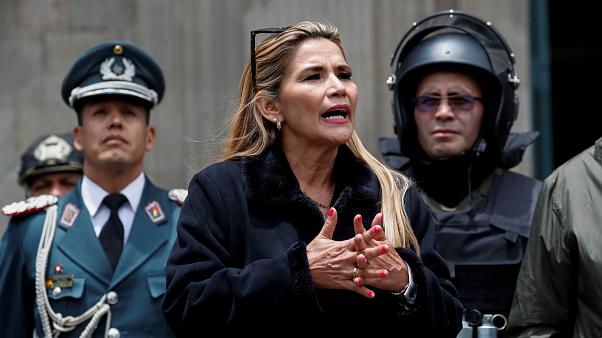The Second Bolivian right-wing Vice President of the Senate Jeanine Anez who replaced ex-President Evo Morales after his resignation will unlikely be the next head of the state. Such conclusions follow from the remaining support for Evo Morales.
On October 20, Bolivia elected incumbent President Evo Morales to the fourth
presidential term. Preliminary results necessitated a runoff election. After a delay of the vote count, Morales won an unexpected victory. On October 22, Bolivian protesters began demonstrations in La Paz capital, drawing police response. Protests spread to other major cities and rapidly escalated, resulting in two deaths.
Evo Morales called on the army to suppress the protests across the country.
On November 10, President Morales resigned due to military coup provided by army leaders and police officials demanding his withdrawal. After his resignation the top four officials in the chain of succession followed Morales. So, the presidency was leaved to the Second Vice President of the Senate Jeanine Anez until January 22.
A peaceful transition of power now is more likely than a week ago, because
military leaders can be expected to participate in the election. It is expected within
90 days in accordance with the Bolivian constitution.
But Bolivia’s political crisis will deepen as state security forces use increasingly
lethal force against mobs of protesters demanding the former President Evo
Morales to return to the country. As of today, the security situation doesn’t give
an opportunity to hold election democratically. Morales supporters initiated violent
protests after Senator Anez assumed presidency, on November 13th.
There are estimates that Evo Morales hasn’t given up and gave hopes to his supporting protesters. He said, “If my people ask, we’re ready to go back. We’ll return sooner or later… to pacify Bolivia.”. lansinginstitute.org analysts admit Evo Morales to turn to his allies from left-wing Latin America partners: Nicolas Maduro, Daniel Ortega and Raul Castro.
Beyond the region, Russia and China could give their support as well, indirectly or in hybrid way.
On November 19, according to Dr. Williams Bastopé, a Bolivian constitutional
lawyer, three Cuban nationals were caught in El Alto with more than 700,000 bolivianos, precisely to finance the protests. And in Cochabamba, a member of the FARC [Revolutionary Armed Forces of Colombia] was caught in the midst of the
confrontations.
Morales supporters have argued that interim president Anez was self-appointed and this decision was illegal. After legislators from Morales’ party declined to appoint her to the position, Anez used a constitutional clause that allows her to assume the position as the Second Vice President of the Senate to appoint herself. But she did not have the required parliamentary quorum to be legally appointed acting president.
Bolivia’s opposition does not accept the claiming that such action was illegal
because the Congress did not formally accept Morales’ resignation. This law
collision decreases Anez’s perspectives of entering in the campaign and fighting
for the highest state position without formal legal obstacles. For Morales’
supporters in their understanding of the law, Morales is still the Bolivian
president.
This is why Bolivia is highly possible to start election procedure but, depending
on the results, peaceful democratic transition of power is questionable.
The MAS party, holding the majority in the Congress, could have voted to reject
Morales’ resignation, potentially creating dueling claims on the country’s
leadership and raising pressure on Anez.
Nowadays opposition to Evo Morales is supported by the army, the police, large
agriculture business, and the Catholic Church.




